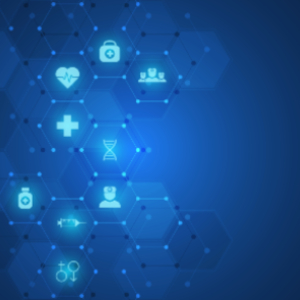
Artificial Technology has left groundbreaking improvements in several industries, and the health industry is no exception. In conjunction with machine learning, AI has been used in a myriad of ways to create a positive impact in our day-to-day lives.
From telehealth to remote medical care and advanced appointment setting options such as AI-assisted diagnoses, the availability of medical care has significantly improved even for those who can’t manage to see their doctors face to face. The already existing Artificial Technology innovations in the medical industry are impressive, but they aren’t the only options available, considering that a lot of work is still underway.
How AI is Used in Medicine
Considering the sophisticated nature of Artificial Technology which has also been highlighted by experts providing professional writing services, it is natural to be concerned about how it even applies to medicine. To begin with, AI has been primarily used in healthcare to help collect and analyze patient data.
This way, the physicians find it easy to understand unique patient needs and tailor treatments according to each patient’s individual needs. In this article, we explore the top 8 Artificial Technology innovations that are already making waves on the web or have a strong potential to cause significant disruptions in the healthcare industry.
I. Autism Virtual Reality (VR) Application
Autism spectrum disorder is a medical condition linked to impaired brain development. It affects how an individual perceives or socializes with the people around them.
This may boil down to a breakdown in communication or social problems in interactions. The Autism VR application is designed to let a person who isn’t struggling with autism to experience what autistic children go through.
This invention aims to promote empathy and improve the way educators or people who interact with autistic children learn better ways of handling them.
II. Smart Speakers
It is estimated that the market volume of virtual assistants like smart speakers and chatbots will hit $ 44,255 billion by the year 2027. The smart speakers are designed to process audial information to make it a breeze for physicians to capture vital details while spending more time monitoring the patient.
Smart speakers can also be just as valuable to patients as they are to physicians. Chronic patients can massively benefit from system logging and customized medication reminders.
III. Advanced Acute Stroke Care
A stroke happens when your blood supply to the brain is cut off, which leaves some of the essential brain cells lacking oxygen. When you get a stroke, you may experience some form of deficit or disability, which would take quite a lot of time to recover.
A stroke shouldn’t be left untreated for long because this would only increase your risks of massive brain damage and, even worse off, disability. Here’s the snag, stroke patients usually cannot speak because of the way this attack affects them. Different research teams are actively working on AI-driven applications for automating stroke detection and supporting decision-making regarding appropriate treatments for every patient’s unique needs to increase chances of treatment and recovery.
IV. 3D Printed Smart Hand
Researchers have been working on a slew of projects aimed at creating artificial limbs. Of note among these projects is the one utilizing Open Hand Project to develop a 3D printed hand and then use smart components in improving it.
The inspiration behind this project is to come up with extra functionality that would enable the artificial hand to perform actions like changing your TV volumes by just moving your prosthetic arm while away from the TV. With voice recognition functionality, the 3D printed hand can also allow the patient to utter even more complex commands to help with most activities that would need the help of other smart devices in the house.
V. New Techniques for Managing Eye Health and Diseases
Ophthalmology is one of the fields in the healthcare industry that can experience massive benefits if AI algorithms are enhanced to be robust and more accurate. According to search reports compiled by some of the best assignment writers U.K, AI-assisted monitoring of eye health can be a groundbreaker for the timely discovery of severe conditions like diabetic retinopathy and glaucoma that may cause permanent vision loss among patients.
With the help of AI in clinical decision support, physicians can provide eye health care services even to low-resource regions. More accurate AI tools make it easier for physicians to discover complications before they get out of hand.
VI. Cerebral Palsy Assistant
Cerebral palsy affects motor skills, muscle movement, and tone, among others—patients who live with this condition struggle with moving their bodies in coordinated purposeful ways.
Provided by the SMARTCLAP project, the cerebral palsy assistant is designed to help children struggling with this condition increase their motivation. The inspiration behind this app is to make therapist-led sessions fun and engaging for children who often find it difficult to perform tasks recommended by their therapists.
VII. Brain Health Monitoring
The brain controls all the functions of your body, thus making it pivotal for your survival or overall well-being. With the help of Artificial Technology, researchers are constantly working on interpreting the complex data produced by the brain. The aim of AI projects designed for real-time brain health monitoring is to accurately predict issues like seizures and discover the onset of dementia to be able to improve the quality of life of the patients.
VIII. Automated Malaria Detection
World Health Organization (WHO) estimates that just in 2019 alone, there were around 229 million malaria cases and 409,000 deaths worldwide, with children accounting for 67 percent of this group. With Artificial Technology and machine learning, scientists are working on deep learning tools for automating the quantification of malaria parasites in collected blood samples.
Bottom Line
Artificial Technology has massive potential in closing the gap between getting timely and quality healthcare. Nonetheless, both patients and providers should tread with care when considering trying commercially available applications that are not yet adequately tested and validated.
